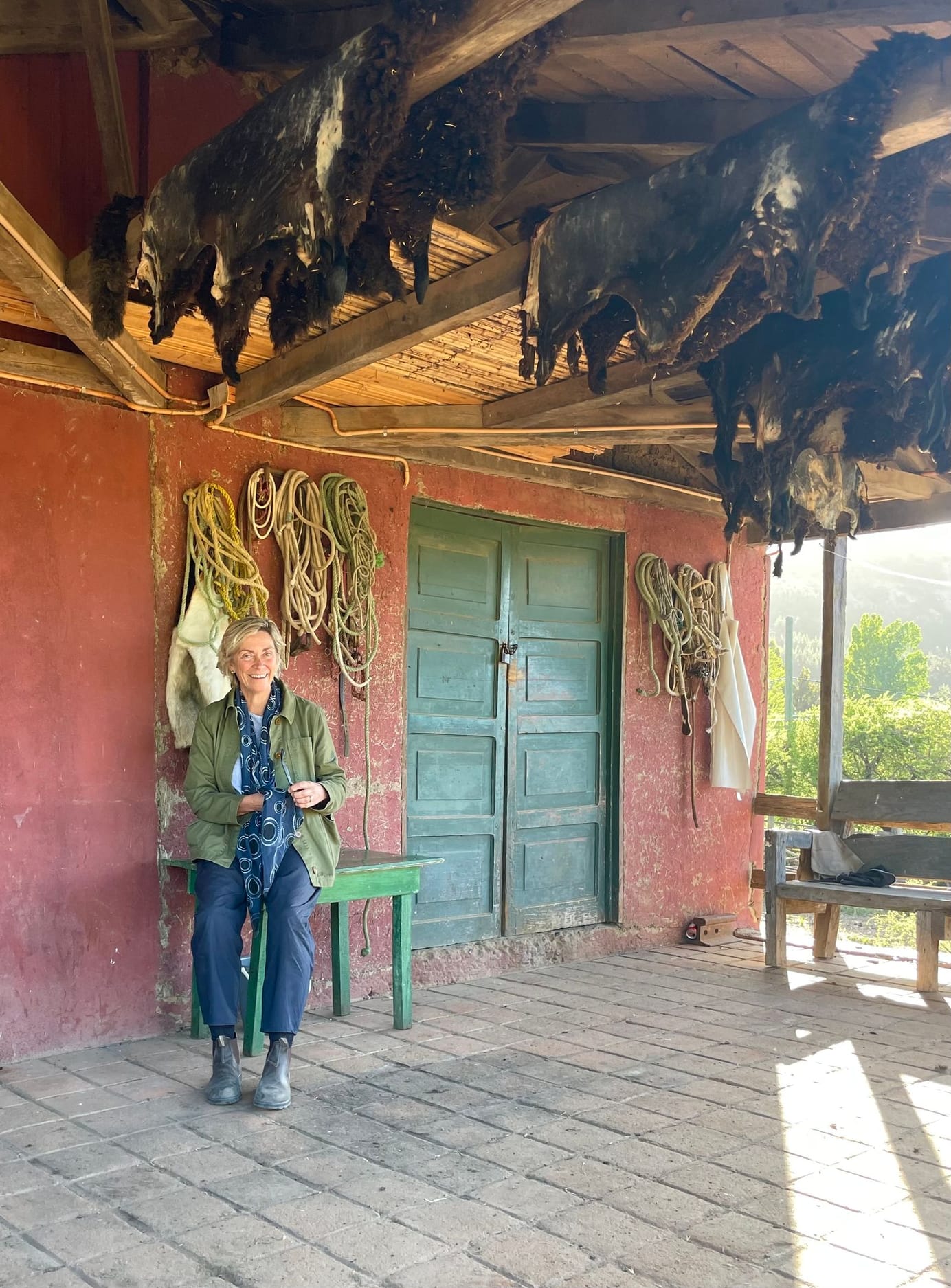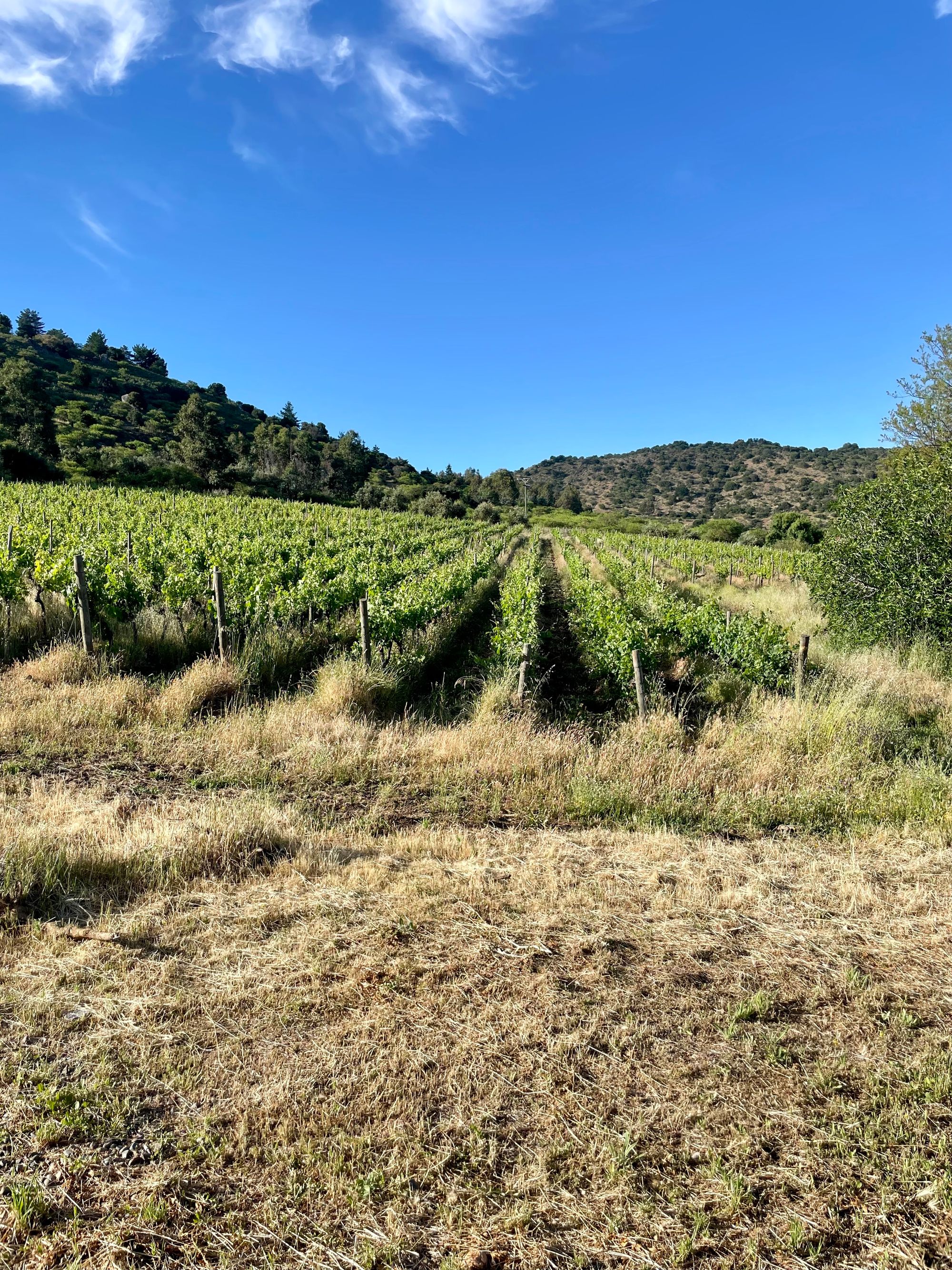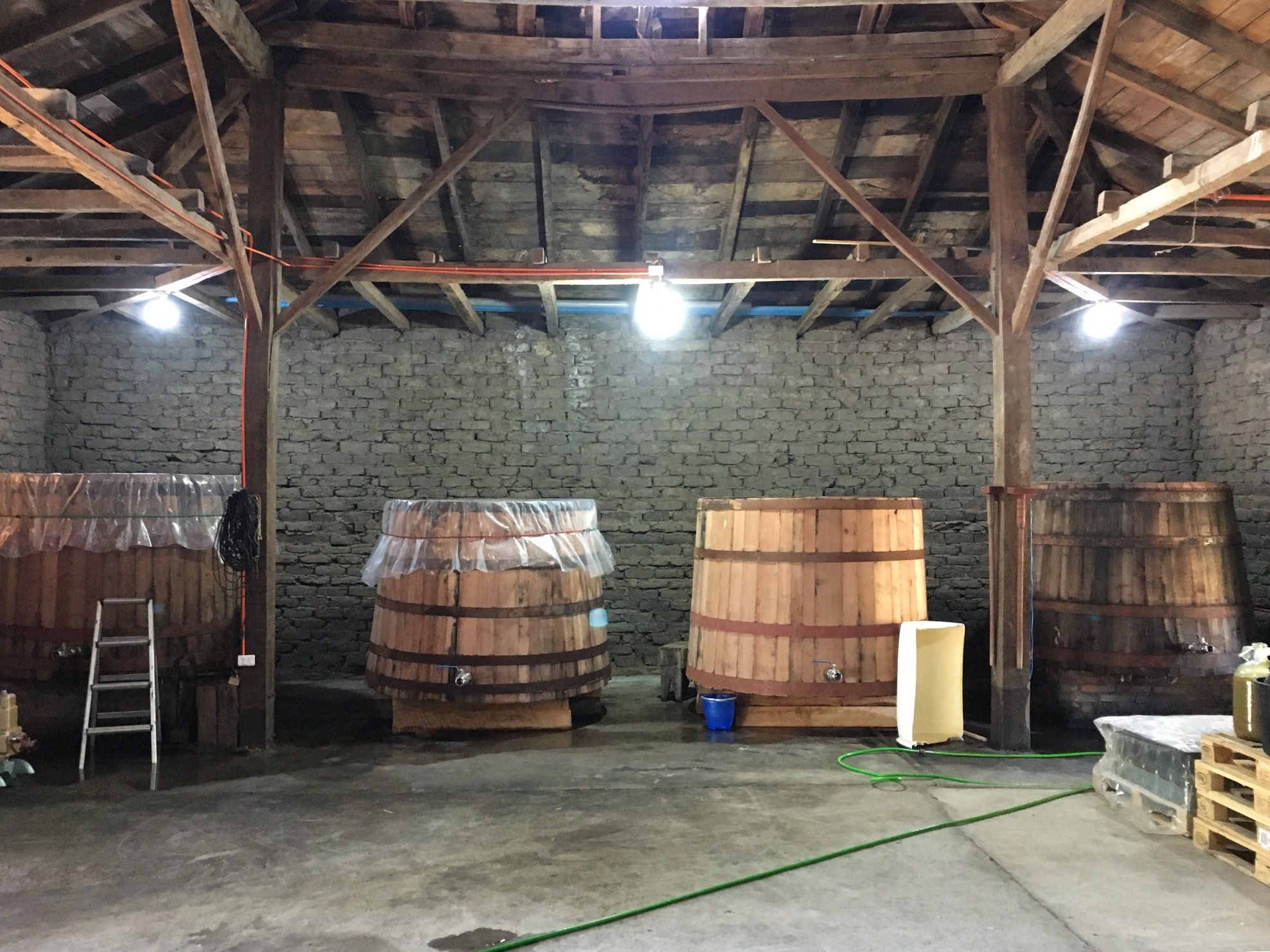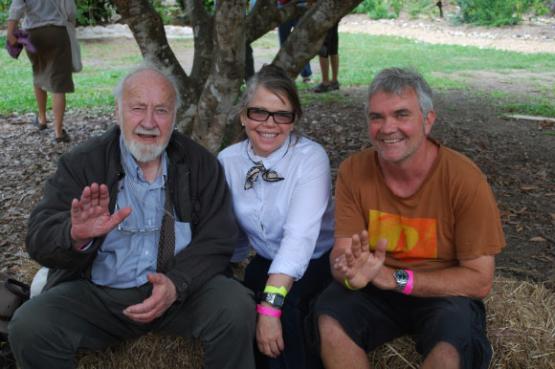
Meet the winemaker: Agricola La Mision
6 min read
Agricola La Mision is a joint project by Elena Pantaleoni and Nicola Massa in Maule, Chile. They grow grapes from centenary plants to make wine using traditional local methods.
We spoke to Elena Pantaleoni after including one of Agricola La Mision's wines in our selection for RAW WINE Club.
Can you tell me about your background, your work at La Stoppa and now with Agricola La Mision?
I'm from Piacenza. My father was a printer, as was my grandfather. My grandmother had a bookshop - and books are my other passion. From the age of 22 to 26, I had a bookshop of my own in Piacenza. I studied languages at school and was young and independent. Meanwhile, my father bought land some 50 years ago now, which became La Stoppa. There were already vineyards there. He did this not as a hobby, but as a second job. Then he passed away when I was 26 and my mum asked me to go and help her. I left my job in the bookshop and decided to be responsible and more useful to my family businesses.
In 1991, I moved to the countryside where we have the estate and I was lucky because Giulio Armani, who has his own project Denavolo now, was working with my parents and still works with me today. I didn't have any studies in enology or viticulture, so he helped ensure continuity in the winery and taught me a lot on the technical side. My mum was 56 when my father passed away so was still young, and had a friend living in Chile. She wanted to go away and moved there, importing Italian food products. After a few years, she bought land and planted some vines. It's always been my mum steering my decisions! 3 years ago, she came back, but she's why we have this link to Chile.
It all started by chance really, and I found winemaking was a very interesting job - it allowed me to be creative and to be myself. My mum said to me - selfishly but also generously - you have to make this estate your own, if I stay, you'll never grow up. And after 32 years, I've really found satisfaction in this job and am able to pour all the things that are important to me into this estate.
How did Agricola La Mission come to be?
I had the opportunity to go to Chile almost every year to see my mum. At the beginning I just went to see her, then I made friends there, and then I started travelling around Chile. 10 years ago, I discovered all this patrimony of very old vines. There was no phylloxera in Chile, and they had some Spanish varieties which had arrived in 1550, especially Pais. Very near to my mum's estate, 1-2 hours south, there's this amazing treasure of thousands of hectares of very old vines, all bush vines, predominantly Pais.
Very few people knew about this. People from Chile always managed the vineyards and vinified the grapes, mainly for personal consumption, but Louis-Antoine Luyt - a winemaker and friend of my mum's - was the first to really give value to that and speak out about it. He told me, there's this huge thing here and I'm by myself, we need more people to make more wines here and spread awareness about this totally different side of Chile. Worldwide, Chile is largely known for cheap wine, made using international varieties, mainly French varieties, but this part of Chile's wine history is really important, and really special.
In 2015, I decided to start a new project with my partner Nicola Massa and purchase some of these grapes. We started with a 2016 vintage, we selected vineyards nearby and restored my mum's cellar. We started out purchasing grapes from Maule, north of Itata and Bio Bio. The Maule Valley is warmer, further from the sea and very dry. Itata wines are generally lighter, less deep in colour and more elegant maybe, as it's closer to the sea and the temperature varies more from day to night.
The idea was always to purchase grapes from growers - never to buy vineyards, but to show the people who own them that what comes from their vines has worldwide appeal. It's very natural viticulture, they use little to no treatments. They use some sulfur, but no copper as it's very dry and windy. The grapes are very healthy and crunchy. It's amazing - I've never seen these type of grapes before. And we have a very natural vinification.

What's the natural wine scene like in Chile?
In the last 10 years, a lot of young, new producers have been emerging in Chile. Each time I go back, I find a new young producer. It's really interesting and I'm proud that I paid a small part in this. Helping the growers develop was the idea behind the project, to raise awareness of these Chilean wines, and give the strength and pride to the people who own the vineyards, to vinify the grapes and sell the wine themselves. But unfortunately in Chile, the market for natural wine is very low. There's a number of huge estates that really dominate the market. These natural producers sell 100% or maybe 95% of what they produce overseas, which I think is a pity. The next step is to increase the internal market, but it's hard.
What inspired you to work in the way that you do?
At the beginning, I wasn't so conscious. They were more instinctive decisions. As soon as I moved to the countryside, I decided that I didn't want to spread any chemicals. I was living in Milan, then in Piacenza, so when I arrived in the countryside, I decided that I didn't want to contribute to any increase in pollution, so I opted to work organically. There wasn't organic certification at the time as there is now, but we use only copper and sulfur and that's it.
For at least 6,000 years, wine has been produced in the way that we now call natural wine. If you think about it long term, conventional wine has a very short story, so to me it's very weird that now we have to call these wines natural when it's been produced like this for thousands of years. When I talk about my wines, I never call them natural wines, I just call them wine. I have a more humanistic approach rather than a technical approach, and this has helped me approach things from a different angle.
Wine has always been a media to talk about a way of life. I always learned to ask myself why I do things, before asking how. If you work with nature, you have to change your perspective because vines can last much longer than we can last. It's not a question of being humble, it's a question of using common sense and being realistic. I have to adapt myself to the place where I am and make wines according to the place. It's not about what I like or don't like, it's about taking time to observe and understand the place where you are - and of course using your experience and sensibility to make wines that really speak to that. So the wines from Italy and wines from Chile have a real sense of place. It's not my wine, it's the wine of the place.
For me, there isn't another option. We have a big responsibility - intensive farming is a big polluter and seeing wine or agriculture in general as a commodity is the worst thing we can do. For me the right question to ask would be, how come there are still people making wine in a way that's not natural, organic or biodynamic way? How come people still use so many chemical products? People don't understand that the earth's resources are not endless. We have to take care of it, It's not a goal to work towards, it's a starting point. From there, you can make good wines - great wines - according to the place where you are.

Visit Agricola La Mision's RAW WINE profile to learn more about the winery and discover which RAW WINE fairs they're pouring at soon.


